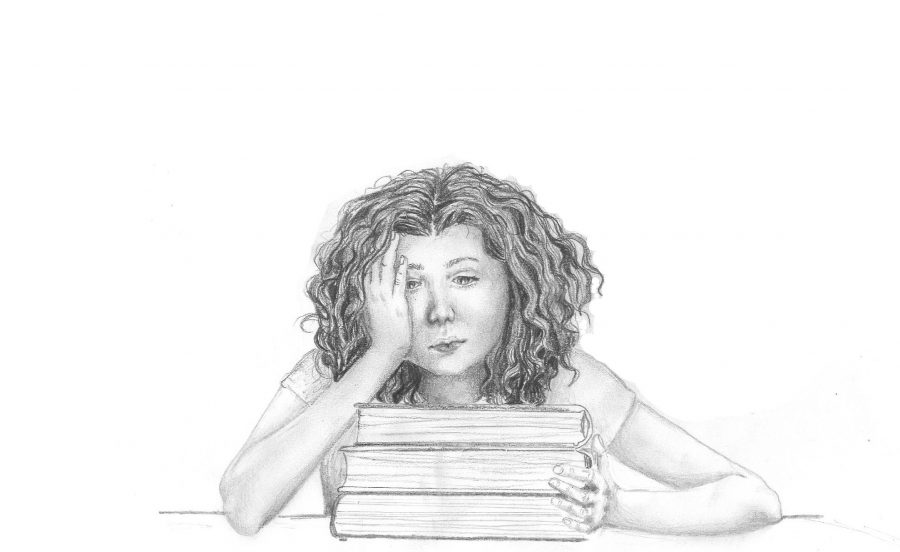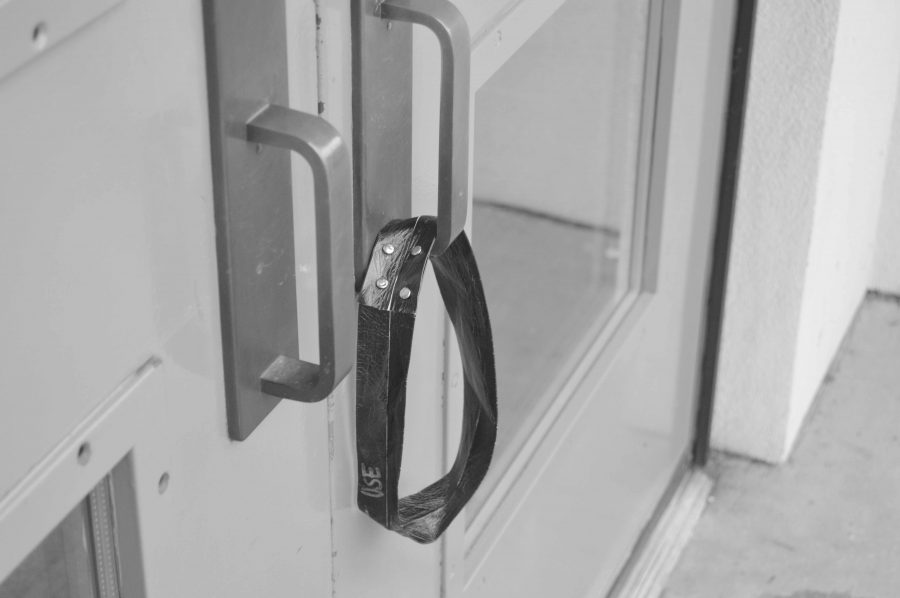You have an AP test tomorrow.
Two essays due Thursday.
A tournament on Saturday.
How will you make it through the week?
As high school students, stress is no foreign concept and many will think about taking a nap instead of finishing all of one’s homework, especially at an age when drama can eat away at student’s energy levels. But will cutting the study time short in order to sleep really make you any less overwhelmed?
Health teacher Rebecca Harris, previously enrolled in nursing school, shares information about the effects of sleep on stress levels from a scientific point of view.
“There are a lot of studies that show that you learn more and retain more information if you sleep well the night before you have a test. So, if you are studying for finals or if you have a big presentation to do, there is a lot of research that shows that it is actually better for you to get that sleep than stay up studying,” Harris said. “[This is] because when your brain shuts down during sleep it can store that information as opposed to having a brain that has been awake for a long period of time and has a lot of stuff on it while you are just really tired. Sleeping directly affects your stress levels because if you are tired you ae still thinking about all the stuff that you have to do.”
Harris also explains how much sleep a student really needs to be able to perform at their best.
“The amount of sleep that everyone should get is dependent on the person. The recommended amount is between five and eight hours a night. Usually the average is around seven but I am the type of person where I really need a full eight hours a night in order to feel okay the next day…It really depends on the person, but for high schoolers, since they are learning so much and all of the studies show that the more sleep you get the more you retain the information, it is more beneficial for them to get more than just five hours of sleep,” Harris said.
Knowing that the amount of sleep the night before a test correlates with the ability to retain information, do high school students really apply these concepts in their daily lives? Junior Karli Mueller shares some of her ideas regarding the stress in the life of an AP student.
“
. I try to deal with it by getting more sleep but that usually fails. I try to set out a certain amount of time for my homework while I am not talking to anyone to distract me,” Mueller said.
Getting enough sleep has an effect on stress levels and Mueller has witnessed the shift in anxiety on days when sleeping in is more practical. Mueller also shares some tips for preparing before a test that she uses in her daily life.
“On the weekends I get a lot of sleep; I sleep in until at least 10 or 11 a.m. And I am usually not stressed on the weekends because I spend more time just chilling out and I can relax. During the week, as far as sleep goes, I have tried to go to bed earlier but it is hard because you are on a sleep rhythm that you cannot really change,” Mueller said. “I would not study a lot the night before a test because cramming is not effective at all. I would just get as much sleep as possible, at least eight hours and drink lots of water. I know we correlate caffeine with sleep and try to get more energy that way but that kind of backfires when you have a lot you need to get done.”
Mueller demonstrates how someone who consistently has high stress levels can learn what works best for them. But even when certain things are known to be effective for dealing with stress, people still do not always do them.
Sophomore Paris Cherri shares her experiences with sleep, stress and strategies throughout this year.
“Sometimes I stay up later than I want to in order to get everything done. If I had a big test coming up the next day I would study a little and then sleep because sleeping is really important. I do not stay up late often though. I think a lot of other students in high school are as stressed as me but most of my friends are not because they do not have as much homework as I do from AP classes,” Cherri said. “I deal with stress by trying to get things done right away, but sometimes it depends on the class. Stress affects my life in a negative way when it is all I can think about and I cannot get things done quickly because I am too busy thinking about getting other things done and then I am tired all the time.”
The affirmation that sleep is an important factor in managing stress was unanimous among these three and proven by many studies and experiments. But only when a student actually gets that sleep will they find their own ways to relax and forget about everything going on.
Sleep linked to lower stress levels
Katie Seiberlich, Features Editor
Published June 1, 2016
Credit: Emily VanBergeyk
Story continues below advertisement
0
Donate to The Viking Vanguard
$15
$500
Contributed
Our Goal
Your donation will support Viking Student Media and the content we create. Your contribution will allow us to purchase equipment and cover our annual costs, including website hosting, printing the newspaper and yearbook, and purchasing new equipment.
More to Discover









